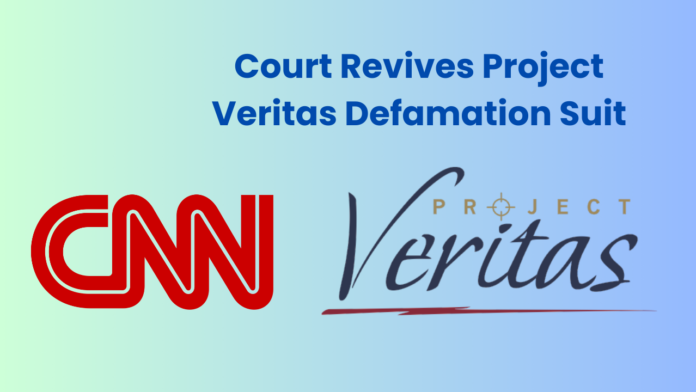In a significant legal development, the 11th U.S. Circuit Court of Appeals on Thursday reinstated a defamation lawsuit brought by conservative activist group Project Veritas against CNN. The court ruled that Project Veritas could pursue its claim that CNN misrepresented the reasons behind its 2021 suspension from Twitter, allegedly damaging its reputation.
The lawsuit centers around comments made by CNN journalist Ana Cabrera, who, during an on-air segment, stated that Project Veritas was suspended from Twitter for “promoting disinformation.” According to Project Veritas, Twitter suspended its account not for disinformation but for publishing private information, a practice often referred to as “doxxing.” Project Veritas claims that CNN’s portrayal of its suspension was not only inaccurate but also defamatory, implying that the group had engaged in a more serious violation.
Project Veritas, led by James O’Keefe, is known for releasing undercover videos and often uses what it describes as “investigative journalism” tactics to expose alleged wrongdoing by public figures and institutions. Critics, however, frequently accuse the group of using misleading and deceptive methods to capture out-of-context statements in an effort to advance conservative causes.
The lawsuit was initially dismissed by a lower court, but the 11th Circuit Court of Appeals in Atlanta found that Project Veritas had a plausible claim of defamation, allowing the case to proceed. In its decision, the court emphasized that Cabrera’s statement could reasonably be interpreted as suggesting a different, potentially more damaging reason for the suspension, thus giving rise to a defamation claim.
CNN, for its part, has defended its reporting as accurate and plans to contest the case. The network maintains that it has adhered to journalistic standards in covering Project Veritas and its contentious activities.
Project Veritas hailed the ruling as a victory for its reputation, arguing that it has consistently adhered to ethical journalism practices despite accusations of partisanship and deceptive tactics. The group also underscored its belief that media organizations should be held accountable for what it views as biased or inaccurate reporting.
The appeals court ruling underscores the continuing tension between Project Veritas and major media outlets, as well as the broader legal and ethical debates over reporting on politically charged organizations. With the case now revived, CNN could face a lengthy legal battle, as Project Veritas seeks to prove that it was unfairly maligned and suffered reputational harm due to the network’s statements.
As the lawsuit proceeds, the case is expected to prompt discussions on press freedom, media accountability, and the legal boundaries of defamation in reporting on controversial groups.




